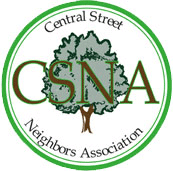Bruce Mitchell's Library Speech
On Nov. 6, 2010, at the City's budget hearing, Bruce Mitchell, Evanston restaurateur and former longtime ETHS English teacher, gave an eloquent 2-minute statement on the branch libraries that made an impression on all who heard it. While the mere text does not do justice to Bruce's presentation, I was able to hunt it down and hereby re-print it, with his permission.
Speech to City Council
Bruce Mitchell • Nov. 6, 2010
Good morning. I am here to speak in favor of keeping the branch libraries open. I hope that your decision to close the branches is not already a fait accomplit, a done deal. Many have argued that the modest cost of maintaining the branches is nevertheless prohibitive and that the library itself is an anachronism, a dinosaur competing with Kindles, Readers, iPads, and other smaller, brighter, faster computers. It is no secret that to compete with these technologies, libraries will have to take on new roles, reconfigure their spaces, and become cultural centers of social networking as well as viable learning environments. The Evanston Library and its branches somehow must survive and are already doing all of these things, from providing hi-speed Internet access for an extraordinary range of people and ages to serving as walking-distance, easy-access, community centers for ourselves and those choosing to move here because of our appreciation for learning.
Through the generations, the Evanston libraries have served as comfortable spaces where people can meet, discuss, access, evaluate, and share information. They have been safe havens where unseen linkages could be formed between individuals and information. The two branches, North and South, are important outposts of the Main Library, public spaces where neighborhoods can shake hands and impart knowledge. That has been the branches' long and unheralded history, which now may end in a single vote.
For some surgeons, to cut a limb is simple, but for most patients, that cut is complex. Long-term familial and familiar places of connection will suddenly be gone and we, as a community, will see less of each other, shake hands less often, and find our children’s children’s Evanston a little less welcoming.
Forums:
- Log in to post comments
